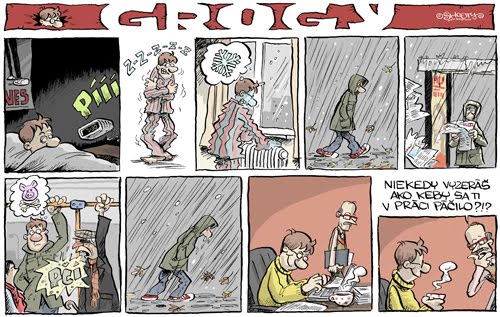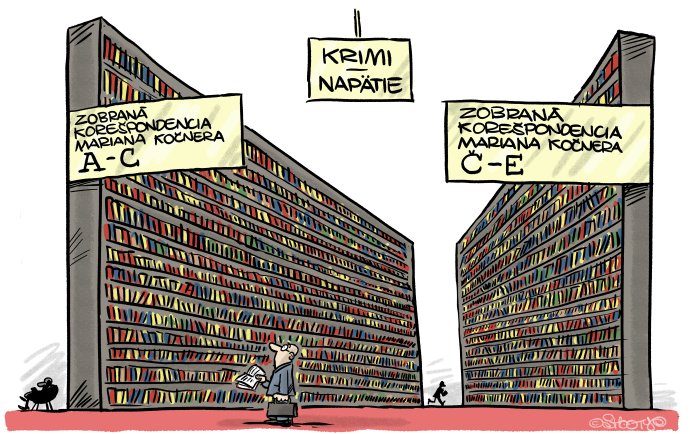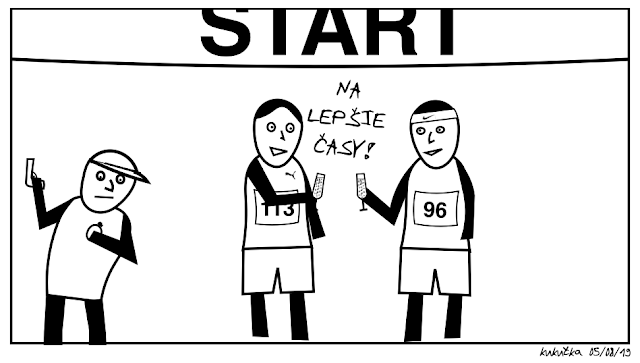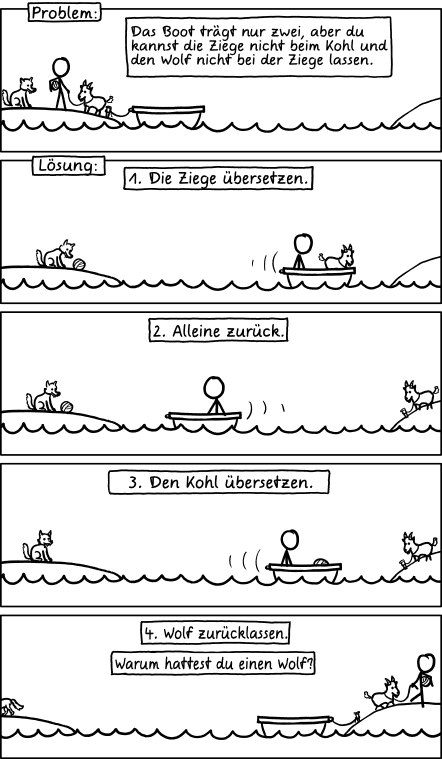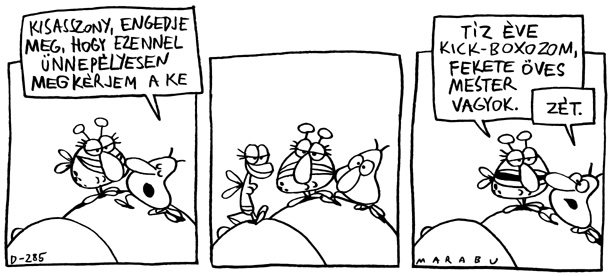===
GERMAN
The example sentences are from Farrell's Dictionary of German Synonyms, Duden Online, Digitales Wörterbuch der deutschen Sprache, and Your Daily German - mögen, gern, gefallen - What is the difference.
ia) gern(e) "gladly, willingly; often, usually"
- Ich esse Austern gern. "I like to eat oysters." ~ "I enjoy oysters."
- Ich schwimme nicht gern. "I don't like to swim / I don't like swimming."
To signal enjoyment of an activity or not, include the adverb gern(e) in the phrase with a conjugated verb. A closer translation to English is "I [do something] gladly".
There's also ungern which signals reluctance or a lack of enthusiasm for an activity but is a less intense negation than nicht gern.
- Niemand redet so ungern über Geld wie die Deutschen "Nobody dislikes talking about money as much as the Germans."
- Kannst du mir einen Gefallen tun und 2 Stunden auf meinen Hund aufpassen? - Hmmm... ungern, ich habe echt viel Arbeit. "Can you do a favour for me and watch my dog for two hours? - Hmmm... I'd rather not... I actually have a lot of work."
Apart from being used to signal one's (dis)liking of an activity, gern(e) shows up in other contexts including some idiomatic constructions.
- Danke schön! - Gern geschehen! "Thank you very much! - Not a problem!" ([It] happened gladly!)
- Kommst du mit? - Ja, gern! "Are you coming along? - Yes, gladly!"
- Das glaube ich dir gern. "I'll bet!" / "I don't disagree with you." (I gladly believe you - colloquial)
- Du kannst gern mitkommen. "You're very welcome to come along." [hinting also at the speaker's approval of the other person's performing the action]
- Diese Pflanze wächst gern auf trockenem Boden. "This plant often grows in dry soil."
ib) gern haben
- Ich habe ihn gern. "I like him."
- Ich habe dieses Bild sehr gern. "I like this picture very much."
To signal liking of a person or thing, a common way is to use the combination of gern haben literally translated as "to have willingly" with the object of affection marked in accusative. In this sense, it's equivalent to mögen (q.v.).
- Ich hätte gern ein Kilo Trauben. "I'd like a kilo of grapes."
When conjugated in Konjunktiv II (~ subjunctive), the combination takes on the meaning "I would like..." and is frequently used when shopping at a bakery, butcher's shop or farmers' market, or ordering at a restaurant.
ii) gefallen "to please"
- Wie hat Ihnen das Konzert gefallen? "How did you like/enjoy the concert?"
- Die Frau da gefällt mir. "I like the woman over there." [because she's physically attractive; don't know her in person]
To signal that one finds an external characteristic of something or someone pleasing, one uses gefallen, and this also applies to aural and/or visual experiences such as concerts or movies. Note how this resembles Polish podobać się and Slovak páčiť sa which are structurally similar.
If one's affection or admiration is tied to its taste, smell or feel, or belies a deeper connection, then using mögen, gern haben or schmecken, depending on the situation, is more appropriate.
iii) mögen "to like; may, might"
- Ich mochte ihn sehr. "I liked him very much."
- Mein Töchterchen mag Kuchen. "My little daughter likes cakes."
- Ich mag, wie sie redet. "I like how she talks."
- Ich mag es nicht, dass du mich immer unterbrichst. "I don't like it that you always interrupt me."
- Ich mag es, den ganzen Tag zu schlafen. "I like to sleep all day."
- Ich mag Schwimmen. "I like swimming."
This gives the sense of (dis)liking an object, person, experience or activity because of a deeper, longstanding or personal acquaintance.
- Ich möchte ein Kilo Trauben. "I'd like a kilo of grapes."
- Sie möchte Herrn Meier sprechen. "She would like to speak to Mr. Meier."
- Ich möchte gern kommen. "I'd like to come."
As with gern haben, conjugating mögen in Konjunktiv II (~ subjunctive) is translated as "I would like..." but can be complemented by a noun or an action, and made less abrupt and somewhat more colloquial by adding gern.
- Was mag er wohl denken? "What could he be thinking?"
- Es mochten dreißig Leute sein. "There might have been thirty people."
- Kommt sie? - [Das] mag sein. "Is she coming? - Maybe."
- Was mag das bedeuten? "What might this mean?"
Using mögen "may, might" is also possible, but it doesn't turn up frequently with alternative constructions of very similar (if not identical) meaning often being used instead.
- Es waren schätzungsweise dreißig Leute. "There were approximately thirty people." for Es mochten dreißig Leute sein. "There might have been thirty people."
- Kommt sie? - Vielleicht. for Kommt sie? - [Das] mag sein. "Is she coming? - Maybe."
- Was kann das bedeuten? "What can that mean?" for Was mag das bedeuten? "What might that mean?"
iv) schmecken "to taste" etc.
- Schmeckt es? "Does it taste [good]?" ~ "Do you like it?" [i.e. the food/dish/drink]
- Das Essen hat [mir] geschmeckt. "The food [for me] tasted good." ~ "I enjoyed the food/meal."
This is an idiomatic usage and applies only to food or drink. It also stands in contrast to mögen and essen / trinken gern which signify longstanding (dis)liking of a dish or preparation rather than (dis)liking the same as served at a specific time/meal.
---
ITALIAN
The example sentences are from the online Collins Italian-English dictionary, The Smiling Eggplant, and WordReference: ti voglio bene vs. ti amo
i) piacere (a)
- Mi piace di più così. "I like it better this way."
- Mi piace molto questo quadro. "I like this picture very much."
- Quei ragazzzi non mi piacciono. "I don't like those boys."
- Che cosa ti piacerebbe fare? "What would you like to do?"
This is a very common way to express one's (dis)like of something (including an activity) or someone regardless of whether the feeling comes from a first impression or prolonged exposure. Italian doesn't use a transitive verb like "to like" which requires a direct object, but relies on a construction with a verb translateable as "to please" and the source of (dis)pleasure acting as a subject in 3rd person. For example, a closer translation of Mi piace di più così "I like it better this way." is "This way pleases me more." One can indicate the degree of (dis)like by adding molto "very (much)".
Other ways to express how much one (dis)likes something or someone include using tenerci (a) "to care about sb" or saying how something is a positive or negative quality (e.g. Questo pasto è buonissimo! "This meal is very good!" (i.e. I like it a lot!)), but these are less direct ways to translate "to please" let alone "to like". Note how this is used in more situations than German gefallen, Polish podobać się and Slovak páčiť sa which are structurally similar.
ii) volere bene (a)
- Ti voglio bene. "I like you (a lot) / I'm fond of you / I love you."
This structure is probably more familiar to speakers of several other languages including English because it uses a transitive verb (here volere "to want") with an object of (dis)like. However, the usage is such that it's used only for people, and has the nuance that a person is quite of fond of someone else or loves someone in a non-romantic way (e.g. as children do with their parents).
---
POLISH
The example sentences and commentary are from lubić, podobać się etc. What's the difference and what else is out there? and the Internet.
i) lubić "to like"
- Lubię cię. "I like you / I'm fond of you." (e.g. because you've proven to be a good person to me)
- Lubię piec. "I like to bake." (e.g. because I find it fulfilling)
- Lubię te ciastka. "I like these cookies." (e.g. because they taste or smell good)
When referring to people, it signifies platonic affection. It's also used to describe one's (dis)like of an activity or thing. In all instances, it suggests that the feeling is based on long-standing experience rather than an impression or something similarly fleeting.
ii) podobać się
- Podobasz mi się. "I like you." (e.g. because of what you're wearing (or not
- Podobają mi się te ciastka. "I like these cookies." (e.g. because the frosting is in a nice design)
This verb suggests that the (dis)like is based on appearance, or a brief impression rather than long-standing experience. When referring to people, it signals that the attraction is based on a physical characteristic but that may also hint at a certain amount of sexual attraction. Note the similarity with German gefallen and Slovak páčiť sa.
iii) smakować "to taste (good); sample"
- To mi smakuje. "I like it (i.e. the food/drink)"
- Czy smakują ci jeżyny? "Do you like berries?"
This verb is ultimately a borrowing from Old or Middle German (cf. English "to smack" (as in 'That smacks of treason!'), German schmecken "to taste") and works very similarly to its German counterpart. It's used only to express (dis)like of food and drink, but can express that (dis)like at a particular time (e.g. to mi smakuje "I like it." (i.e. the food or drink that you just served to me)) or as something general (e.g. Czy smakują ci jeżyny? "Do you like berries?" (in general) ~ "Do berries taste (good) for you?"). In the second sense, it's a variant of lubić and the question could have been rendered instead as Czy lubisz jeżyny? "Do you like berries?".
A less obvious but figurative way to express one's (dis)like of a meal or drink is to use odpowiadać "to answer; be suitable" as in Śniadanie mi odpowiadało. "Breakfast was suitable for me" ~ "I enjoyed/liked breakfast."
SLOVAK
The example sentences and commentary are from páčiť sa, rád, etc. What's the difference?, Slovenské slovníky and the Internet.
i) páčiť sa
- Páčil sa ti ten film? "Did you like that movie?"
- Páči sa ti čo máme? "Do you like what we have?"
- Páči sa vám muž: Ako zistíte, či aj vy jemu? "You like a man: How do you find out if he likes you back?"
Like German gefallen and Polish podobać się which it resembles structurally, the Slovak verb translates best as "to please" and suggests (dis)like based on a first impression (especially a visual one). The headline in the link translates more accurately as "A man pleases you: How do you find out if also you to him?" rather than the looser but more idiomatic "You like a man: How do you find out if he likes you back?"
There're also the idiomatic expressions nech sa páči and páči sa both meaning "let (it) please (you)" and used in situations where one would use the courtesies "here you go", "after you", "next (customer in line)!" or even "may I help you?" in English.
ii) mať rád etc.
- Máš rád ten film? "Do you [masculine] like that movie?"
- Mám ťa rada, Pavlínka "I [feminine] love you, Pavlínka."
This differs structurally from the German counterpart in gern haben only in how Slovak rád requires marking for gender and number on the part of the subject. Otherwise, German and Slovak combinations overlap greatly when it comes to meanings/nuances. In Slovak, the combination suggests (dis)like based on prolonged exposure rather than a first impression or something superficial. When used in reference to a person, it's best translateable as signalling platonic love or fondness and differs from milovať which often carries romantic and/or sexual overtones.
iii) rád etc.
- Rád cestujem. "I [masculine] like to travel."
- Nerád cestujem, ale stále som zbalený. "I [masculine] don't like to travel, but I'm still packed."
This resembles the use in German of gern with a conjugated verb, and signals (dis)like of an activity. The Slovak adverb is inflected for gender or number as appropriate, however, as it is with mať rád etc. (q.v.).
iva) chutiť "to taste (good); like, enjoy"
- Obed jej veľmi chutil. "She liked (the) lunch very much."
- Robota mu chutí. "He likes/enjoys the work/job."
- Nechutí mu fajčiť. "He doesn't like to smoke [because of the taste]."
Like German schmecken, Italian piacere a and Polish smakować, Slovak chutiť is an impersonal verb and puts the source of a (dis)like as the subject in the 3rd person while the person who (dis)likes is in dative. Although it usually deals with (dis)like based on taste, the Slovak verb can be used as a variant of páčiť sa (q.v.) when the source of dislike is an abstract noun thus singalling one's (dis)pleasure of something that doesn't involve taste. Furthermore, it can denote (dis)like of something at a particular instant as in a meal or something in general.
There is also the idiomatic use meaning something akin to "to have little appetite" as in Dnes mi nechutí. "I don't feel like eating today." (more closely: "Today it doesn't taste (good) to me.")
ivb) šmakovať "to taste (good); like, enjoy"
- Obed mu šmakoval. "He liked (the) lunch."
This is a colloquial variant of chutiť and bears an obvious similarity to German schmecken and Polish smakować. It covers expressing (dis)like of food or drink only (i.e it doesn't act as a variant of páčiť sa as chutiť may).
===
Errors and misinterpretations are mine.






